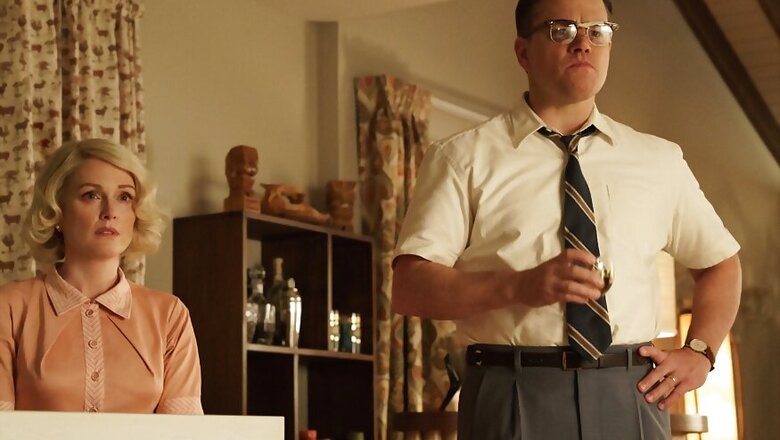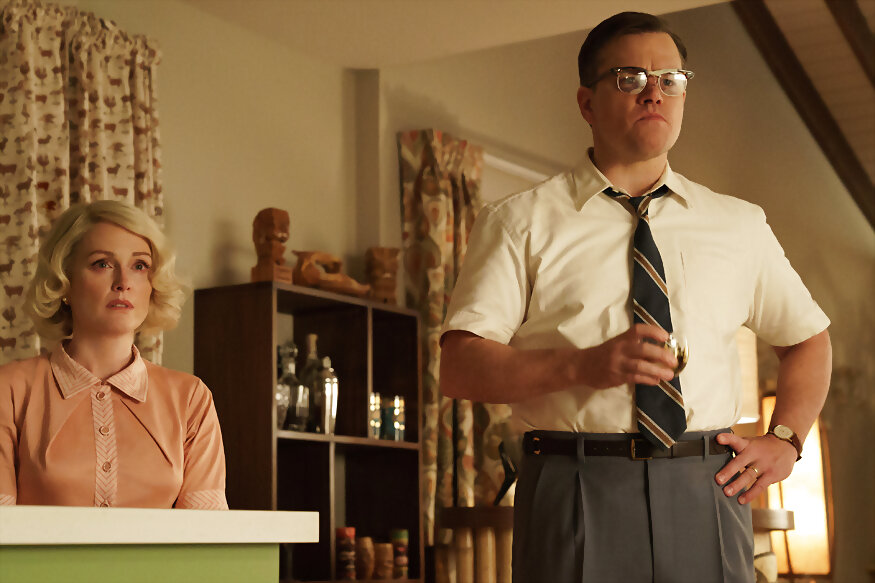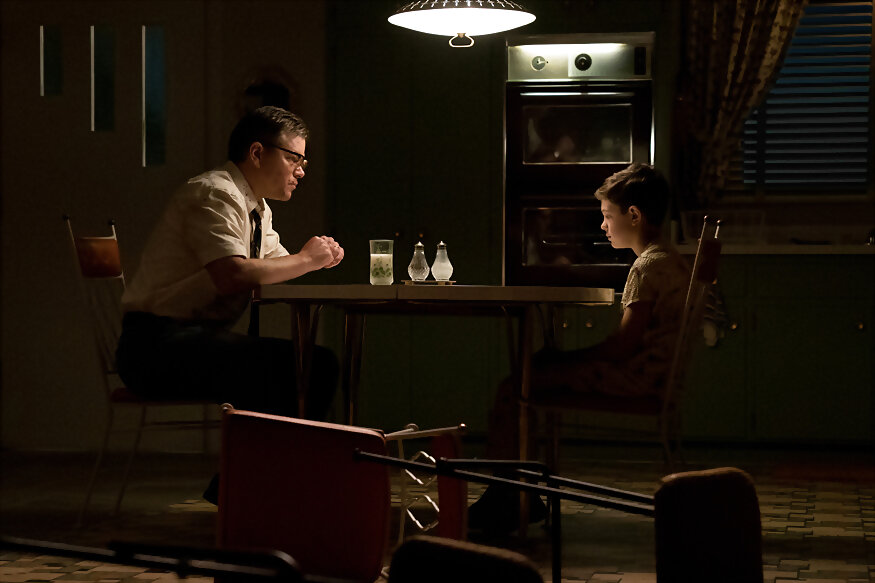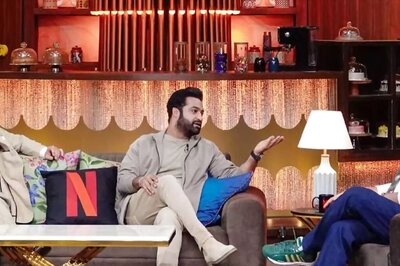
views

In the May of 2016, George Clooney was at the Cannes Film Festival with his Money Monster, and at a press conference there he categorically said Donald Trump would not become the American President. “There’s not going to be a President Donald Trump,” he said in a voice that appeared so confident. But time proved him wrong. Trump became President. He did.
Now at the 74th edition of the Venice Film Festival – where Clooney is with his directorial effort, Suburbicon – he told another press conference on September 2 in reply to a final question whether he would like to be the next President: “Oh, that sounds like fun... I’d like anybody to be the next president — and right away please.”
Clooney, whose father ran for Congress in 2004, has been fielding this question for years. And in the past, his answer has been a more clear-cut “no...who would ever want to live like that?” Clooney said in 2015, freezing the assumption that he would go into politics. “I’m friends with a lot of those guys and I just think it’s hell.”
Much like American documentarian Michael Moore who hated President George Bush – and dislikes Trump as well - Clooney has been a perennial Trump basher. In fact, Clooney's Venice competition title, Suburbicon, which screened on September 2, has been indirectly inspired by Trump.

The movie set in the 1950s talks about a black family which moves into an idyllic, almost perfect, American suburb, and is violently attacked by an angry white mob. This part of the plot is based on a well-known 1957 incident which happened in Levittown, which, in turn, conjures the recent race riots in Charlottesville.
“I was watching a lot of Trump speeches on the campaign trail about building fences and scapegoating minorities and I started looking around at other times in our history when we’ve unfortunately fallen back into these things,” Clooney said at the Venice press conference referring to the inspiration behind his film. However, he added “Suburbicon isn’t a movie about Trump. …This is a film about our coming to terms constantly with the idea that we have never fully addressed our issues with race.”
Clooney's Suburbicon is a comedy, a black comedy set in 1959 – much before the Selma freedom march and the Civil Rights Act, which gave a whole lot of privileges to American Africans. Clooney's story unfolds in a small town of 60,000 people and which is a paradise in every way. Till of course, a black family moves in, and the locals turn beastly.
Suburbicon – which reminded me so much of brothers Ethan and Joel Coen's 1996 Fargo where a husband hires killers to bump off his wife so that he can claim insurance money – has Matt Damon playing Gardner Lodge. Everything looks hunky dory till one night when two hoodlums barge into Lodge's house and kill his wife, Nancy (Julianne Moore, who also essays her sister, Maggie).
The incident looks like a robbery gone wrong – at least until the insurance investigator gets into the play and smells something fishy. He is no patch on the heavily pregnant policewoman in Fargo (portrayed by Frances McDormand – on whom I think the Vidya Balan character was based in Kahani) who doggedly pursues the leads and finally nails the husband.
However, Suburbicon travels on a different track, a track where Lodge and his lover, Maggie (yes he is having an affair with her and together they plan to remove the wheelchair-bound Nancy). Here Lodge lends himself to a series of stupid blunders in a half-baked plan that starts going wrong from day one. We know how it will all end.
As this tragedy unfolds, we watch yet another happening bang across the road where Lodge lives. The whole town is attacking the Negro family which has just moved in, and in a way, Clooney is trying to tell us all that is wrong with America.
The plot by itself may not be very original. But what seemed really striking was the way the movie ends with Lodge's little son, Nicky (Noah Jupe) and the son of the black family starting a game of baseball!
(This reminded me so much about Roman Polanski's 2011 Carnage in which the parents of two schoolboys quarrel after their sons get into a fight. The parents keep arguing and bickering even as we see the boys patch up and begin playing again.)

Clooney told the press conference that he was a highly optimistic man, and had a lot of hope pinned on the younger generation. And this is what he shows in his work, how two children come together after a night of tragic happenings in their respective lives.
The Suburbicon script was first written by the Coen brothers in the late 1980s. Clooney got it from them and tweaked it – giving it a political touch and adding something from a real story which took place in Levittown, Pennsylvania.
But beyond all this, Clooney's work spells anger. He noted in the press conference: “People are angry. We’re angry at ourselves, at the way the country is going, the way the world is going. This film seems to reflect that and I think that’s probably a fair thing to do. But I didn’t want this to just be a civics lesson. I wanted it to be funny, but it’s certainly angry and it got angrier as we were shooting.”
The plot juxtaposes two stories unfolding in the titular, and supposedly idyllic, town. One focusses on Lodge, a husband and father caught up in something sinister — and the other is about the Meyers, a black family that’s just moved in next door and is being violently attacked by a racist mob — and blamed for the unsettling occurrences at the neighbours.
Referring to Lodge using his son's bike to get away in a desperate scene, Clooney said: “It’s the definition of white privilege where you’re riding around your neighbourhood on a bicycle, covered in blood and murdering people — and the African American family is getting blamed for it.”
Clooney ended the conference on a note of optimism: “Movies are used to put a pin in history. That’s when they work really well. Today, it’s the angriest I’ve ever seen the country, and I lived during Watergate. There’s a dark cloud living over our country right now.”
But then “I have a lot of faith in the American youth”, he averred. Suburbicon reveals just that.
(Gautaman Bhaskaran is an author, commentator, and movie critic who has covered the Venice Film Festival for 18 years)




















Comments
0 comment